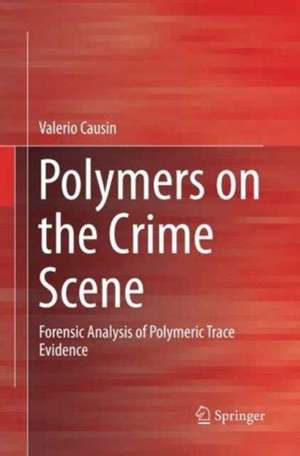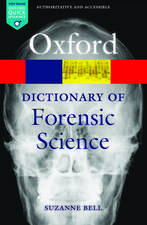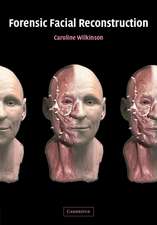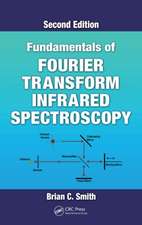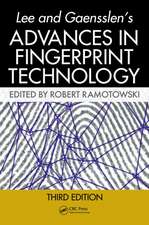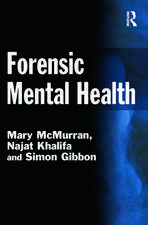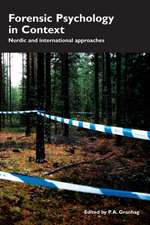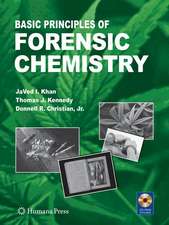Polymers on the Crime Scene: Forensic Analysis of Polymeric Trace Evidence
Autor Valerio Causinen Limba Engleză Paperback – 13 oct 2016
| Toate formatele și edițiile | Preț | Express |
|---|---|---|
| Paperback (1) | 525.80 lei 38-45 zile | |
| Springer International Publishing – 13 oct 2016 | 525.80 lei 38-45 zile | |
| Hardback (1) | 639.42 lei 6-8 săpt. | |
| Springer International Publishing – 4 mai 2015 | 639.42 lei 6-8 săpt. |
Preț: 525.80 lei
Preț vechi: 649.13 lei
-19% Nou
Puncte Express: 789
Preț estimativ în valută:
100.67€ • 104.83$ • 83.53£
100.67€ • 104.83$ • 83.53£
Carte tipărită la comandă
Livrare economică 10-17 februarie
Preluare comenzi: 021 569.72.76
Specificații
ISBN-13: 9783319364124
ISBN-10: 331936412X
Pagini: 367
Ilustrații: XI, 356 p. 217 illus., 73 illus. in color.
Dimensiuni: 155 x 235 x 23 mm
Ediția:Softcover reprint of the original 1st ed. 2015
Editura: Springer International Publishing
Colecția Springer
Locul publicării:Cham, Switzerland
ISBN-10: 331936412X
Pagini: 367
Ilustrații: XI, 356 p. 217 illus., 73 illus. in color.
Dimensiuni: 155 x 235 x 23 mm
Ediția:Softcover reprint of the original 1st ed. 2015
Editura: Springer International Publishing
Colecția Springer
Locul publicării:Cham, Switzerland
Cuprins
Introduction.- Polymers: an overview.- Polymeric traces: transfer, persistence, recovery, analysis and interpretation of analytical data.- Polymers on the crime scene.- Formulation: polymer matrix, fillers, dyes, pigments and other additives.- Synthesis-dependent parameters: molecularweight, constitution and configuration.- Processing-dependent parameters: structure and morphology of polymeric materials.
Notă biografică
Born in 1975, Valerio Causin received in 2004 a PhD in Chemical Sciences at the University of Padova. From 2001 to 2003 he was First Lieutenant at the Chemistry, Explosives and Flammables section of the Forensic Branch of Carabinieri in Rome. Since 2015 he works as a researcher at the Department of Chemical Sciences at the University of Padova. His research interests are focused on the application of polymer characterization techniques to forensic sciences, in collaboration with Carabinieri in Rome, Messina, and Verona. He served as a forensic consultant for the Court, for the Prosecutor and for the Defense in over 100 civil and criminal cases. In 2009 he was awarded the AIM prize for young researchers in polymer science, and in 2011 he was elected a member of the Scientific Committee of POLYCHAR World Forum on Advanced Materials. An author of 75 papers in international journals, he was invited or keynote speaker at a number of international conferences and in universities and research centers worldwide.
Textul de pe ultima copertă
This book approaches the analysis of forensic contact traces from a polymer science perspective. The development of characterization methods of new or unusual traces and the improvement of existing protocols is described.The book starts with a general introduction to polymers and the issues related to transfer, persistence and recovery of polymeric traces. The chapters present a distinctive feature of polymers, discussing how it can be measured, what the practical difficulties which can be encountered in the analysis, and how useful that information is for comparison or identification purposes. Practical tips for the realization of the forensic analyses are included.
Caracteristici
Describes the dynamics of crime investigation and forensic intelligence from the polymer sciences standpoint Defines the molecular and chemical features of materials in the context of forensic research Details how contact traces are relevant to verifying investigational hypotheses and to providing forensic intelligence
